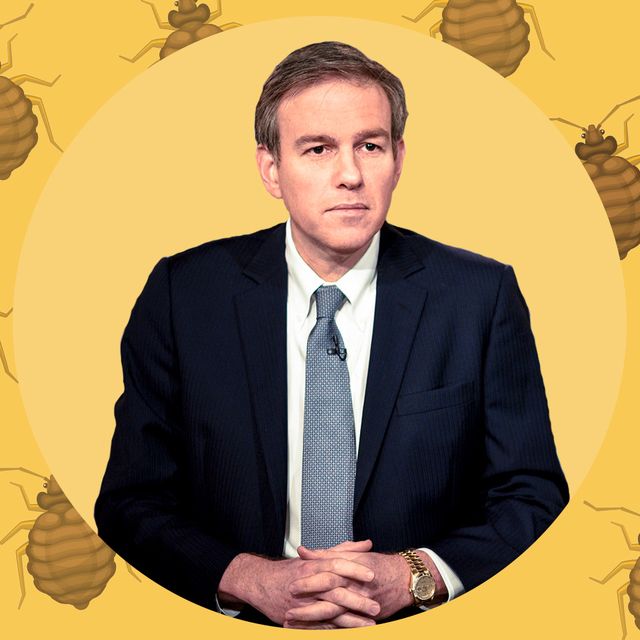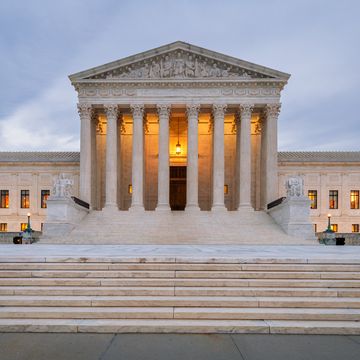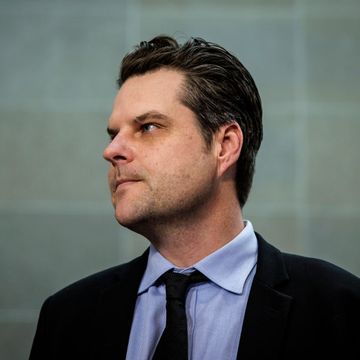Bret Stephens is above me in the status hierarchy. He knows this. I know this. He has won a Pulitzer Prize and has a regular op-ed column in the New York Times. I am just some professor. I’ve written two books, but unless you are professionally involved with digital politics, you probably have never heard of me.
So I was surprised to receive an email from Bret Stephens last night. The subject line read “From Bret Stephens, New York Times.” The provost of my university was cc’ed on the message. Stephens had found a tweet that I had written earlier that afternoon. Riffing on the headline “Breaking—there are bedbugs in the NYT newsroom,” which was drawing rounds of Twitter jokes, I had written “The bedbugs are a metaphor. The bedbugs are Bret Stephens.” The tweet had landed with a thud (nine likes, zero retweets), and I went about my day.
Here is what he wrote, both to me and to my University Provost:
Dear Dr. Karpf,
Someone just pointed out a tweet you wrote about me, calling me a "bedbug." I'm often amazed about the things supposedly decent people are prepared to say about other people -- people they've never met -- on Twitter. I think you've set a new standard.
I would welcome the opportunity for you to come to my home, meet my wife and kids, talk to us for for a few minutes, and then call me a "bedbug" to my face. That would take some genuine courage and intellectual integrity on your part. I promise to be courteous no matter what you have to say.
Maybe it will make you feel better about yourself.
Please consider this a standing invitation. You are more than welcome to bring your significant other.
Cordially,
Bret Stephens
Stephens, it seems, was offended by my lack of decorum online. He felt I had broken some unwritten social contract—that I was being uncivil by delivering an insult online that I would not deliver to his face.
I, meanwhile, was surprised that he had found the tweet at all. I had not used his Twitter handle in the message. With zero retweets, he would have had to look hard to find it on Twitter, and would have had to work even harder to take offense to such an innocuous joke.
But what was most striking to me was that he had gone to the effort to CC the provost. Including the Provost clarifies the intent of the message. It means he was not reaching out in an earnest attempt to promote online civil discourse. It means he was trying to send a message that he stands above me in the status hierarchy, and that people like me are not supposed to write mean jokes about people like him online. It was an exercise in wielding power—using the imprimatur of The New York Times to ward off speech that he finds distasteful.
I was even more surprised this morning, when he was invited to speak on MSNBC about the incident and remarked that, “There’s a bad history of being analogized to insects that goes back to a lot of totalitarian regimes in the past.” You can draw your own conclusion as to whether my joke was worth a chuckle. But equating a random Twitter account with a totalitarian regime is a remarkably long walk. I have to assume that Stephens recognizes that these words would have a different meaning and impact if they came from the ministry of propaganda than when uttered as a cheeky response to a headline about actual bedbugs in a newsroom.
The irony, of course, is that Bret Stephens regularly pens columns decrying the culture of “safe spaces” on college campuses. He once wrote a column titled “Free Speech and the Necessity of Discomfort.” (Discomfort for thee, but not for me, it would seem…)
As luck would have it, I have little to fear from Bret Stephens. I am a tenured academic, with the support of my university of administration and my disciplinary peers. I am also, like Stephens, a white guy. If either of us was a woman or person of color, we would endure far worse insults online every day. My life will go on and so will his. He will have a new nickname that he doesn’t care for; I will have some new Twitter followers who will soon learn that I am less funny than they had hoped.
But here’s what still bothers me as this strange episode recedes from the news cycle: Bret Stephens seems to think that his social status should render him immune from criticism from people like me. I think that the rewards of his social status come with an understanding that lesser-known people will say mean things about him online.
Stephens reached out to me in the mistaken belief that I would feel ashamed. He reached out believing my university would chastise me for provoking the ire of a writer at The New York Times. That’s an abuse of his social station. It cost me nothing, but it is an abuse of his power that would carry a real penalty for a younger or less privileged academic. The Times should expect more of its writers. Stephens should expect more of himself.
No one has freer speech than a public intellectual with a regular column in the paper of record. Stephens is free to say whatever he wants. With that freedom comes the discomfort that people will disagree with you. If Stephens is going to have this social power, he is going to have to learn to wield it more responsibly.
David Karpf is an Associate Professor at George Washington University's School of Media and Public Affairs and author of the books The MoveOn Effect and Analytic Activism.













